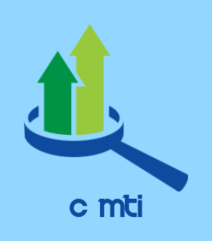Understanding Student Loan Consolidation: A Comprehensive Guide
In today’s fast-paced world, the pursuit of higher education often comes with a hefty price tag. Many students rely on federal or private loans to finance their studies, leading to multiple loans with varying interest rates and repayment terms. Student loan consolidation is a financial strategy that aims to simplify your repayment journey by combining multiple student loans into one, potentially reducing your monthly payments and providing a clearer path to financial freedom.
What is Student Loan Consolidation?
Student loan consolidation is the process of merging one or more federal student loans into a single, new loan. This new loan typically comes with a fixed interest rate based on the weighted average of the interest rates on the loans being consolidated. However, it’s important to note that private student loans cannot be consolidated with federal loans.
Federal Student Loan Consolidation
Eligibility
To be eligible for federal student loan consolidation, you must have direct loans or loans from the Federal Family Education Loan (FFEL) program. Private student loans, unfortunately, do not qualify for consolidation.
Benefits
Consolidation offers several benefits to borrowers, such as:
- Simplified Repayment: Combining multiple loans into one reduces the hassle of managing various monthly payments.
- Extended Repayment Terms: This option can extend the repayment term, which might lower your monthly payment amount, making it more manageable.
- Fixed Interest Rate: The interest rate for a Direct Consolidation Loan is fixed, providing stability and predictability in your repayment journey.
Private Student Loan Consolidation
Private student loan consolidation is a different process from federal consolidation and involves refinancing your loans with a private lender.
Eligibility
Private loan consolidation typically requires a good credit score and income to secure a favorable interest rate and terms.
Benefits
Some advantages of private loan consolidation include:
- Potentially Lower Rates: Private lenders may offer lower interest rates than your existing loans, saving you money in the long run.
- Single Monthly Payment: Just like federal consolidation, private consolidation combines multiple loans into one convenient monthly payment.
- Tailored Terms: You may have more flexibility in choosing repayment terms and plans that suit your financial situation.
Federal vs. Private Loan Consolidation
Key Differences
Let’s take a closer look at the key distinctions between federal and private student loan consolidation:
- Interest Rates: Federal consolidation offers a fixed interest rate based on the average of your existing loans, while private consolidation rates can vary based on your creditworthiness.
- Repayment Plans: Federal loans often come with income-driven repayment options and potential loan forgiveness, which you may lose if you refinance with a private lender.
- Credit Requirements: Federal consolidation does not rely on your credit score, making it accessible to a broader range of borrowers. Private consolidation typically requires a good credit history.

Is Student Loan Consolidation Right for You?
Now that you have a better understanding of student loan consolidation, the next step is to determine if it’s the right choice for your financial situation. Here are some factors to consider:
- Current Interest Rates: Compare your existing loan interest rates to the rates available through consolidation. If you can secure a lower rate, you may save money in the long run.
- Financial Goals: Consider your long-term financial goals. If you aim for loan forgiveness, be cautious about refinancing federal loans with a private lender.
- Credit History: If you have a strong credit history and can qualify for better terms with a private lender, this option may be more attractive.
- Repayment Period: Think about the length of your repayment term. Federal consolidation can extend it, potentially lowering your monthly payments.
- Income and Job Security: Assess your current income and job stability. Private lenders may require a stable income and good credit for approval.
Frequently Asked Questions (FAQs)
FAQ 1: Can I consolidate my private student loans with federal loans?
No, private student loans cannot be consolidated with federal loans. They are separate processes and have distinct eligibility criteria.
FAQ 2: Does federal student loan consolidation lower interest rates?
Federal student loan consolidation does not lower interest rates; it calculates a fixed rate based on the weighted average of your existing loans.
FAQ 3: Are there any fees associated with student loan consolidation?
There are no fees for federal loan consolidation. However, private lenders may have fees associated with loan origination and other services.
FAQ 4: Can I reverse a student loan consolidation if I change my mind?
Unfortunately, federal student loan consolidation is irreversible. However, with private loan consolidation, you may have a short window to cancel the new loan if you change your mind.
FAQ 5: What is the role of the Department of Education in federal loan consolidation?
The Department of Education oversees the federal student loan consolidation program, allowing borrowers to combine their federal loans through a streamlined process.
Conclusion
In conclusion, student loan consolidation is a valuable tool for simplifying your student debt repayment journey. Whether you choose federal or private consolidation, it’s essential to carefully assess your financial situation, long-term goals, and eligibility before making a decision. By making an informed choice, you can take significant steps towards achieving financial stability and freedom. If you have further questions or need guidance, don’t hesitate to reach out to your loan servicer or a financial advisor to explore the best path for your unique circumstances. Remember, financial freedom is attainable, and student loan consolidation can be a significant step in that direction.
